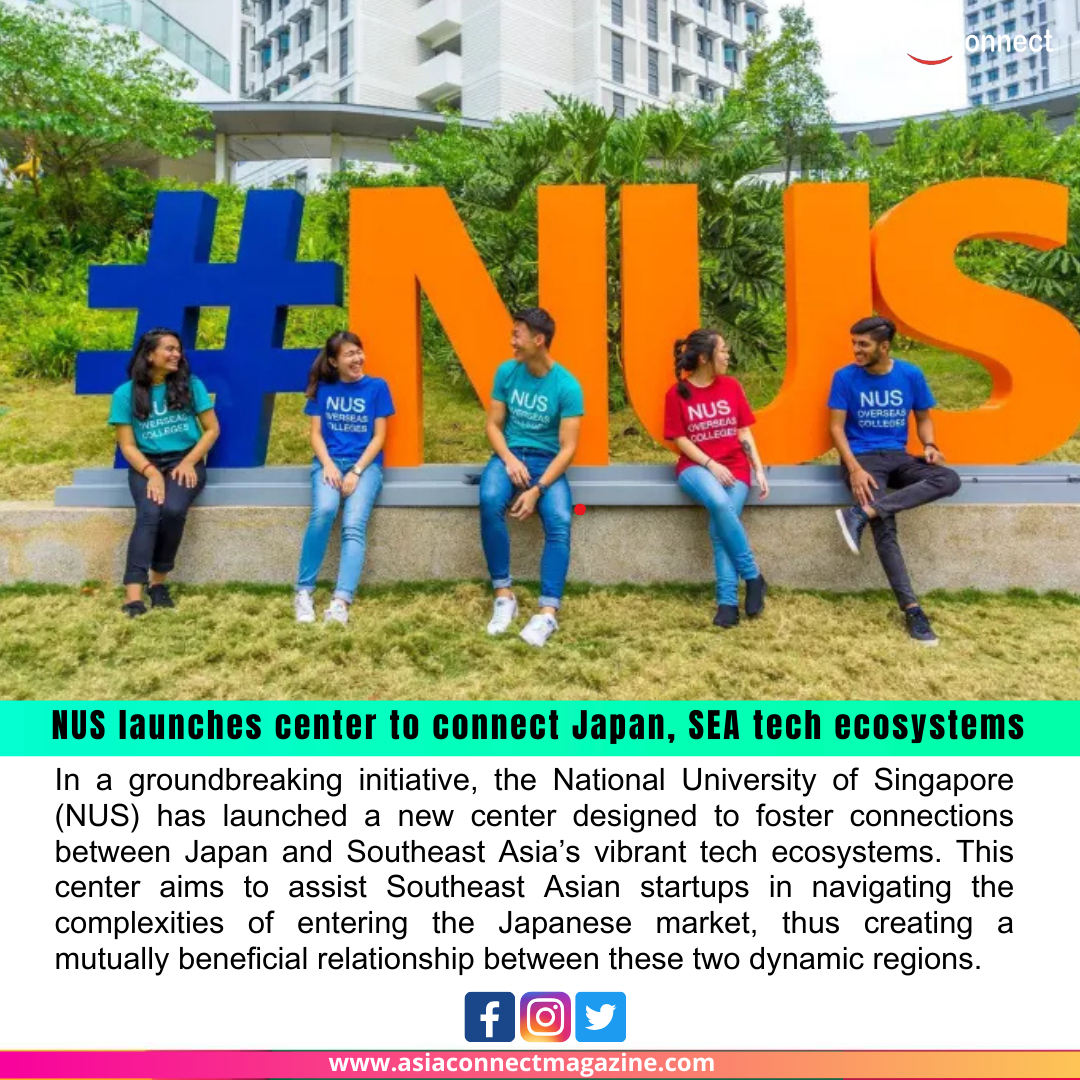In a groundbreaking initiative, the National University of Singapore (NUS) has launched a new center designed to foster connections between Japan and Southeast Asia’s vibrant tech ecosystems. This center aims to assist Southeast Asian startups in navigating the complexities of entering the Japanese market, thus creating a mutually beneficial relationship between these two dynamic regions.
As Japan continues to innovate and expand its technological capabilities, Southeast Asia has emerged as a hotbed for startups and entrepreneurial activity. However, despite the potential for collaboration, many Southeast Asian companies face significant barriers when attempting to enter the Japanese market, which is characterized by unique consumer preferences, regulatory requirements, and a competitive landscape. Recognizing this challenge, the NUS center is poised to provide crucial support to startups seeking to expand their horizons.
The newly established center will offer a range of services designed to facilitate market entry and collaboration. These include mentorship programs, networking opportunities, and access to resources that can help startups better understand the Japanese market dynamics. By connecting entrepreneurs with industry experts and seasoned professionals, the center aims to equip them with the knowledge and tools necessary for success.
One of the center’s primary objectives is to create a robust ecosystem that encourages collaboration between Japanese companies and Southeast Asian startups. This collaborative approach is vital, as it not only benefits startups looking to expand but also provides Japanese firms with fresh perspectives and innovative solutions from the diverse and rapidly evolving Southeast Asian market.
In addition to mentorship and networking, the center will focus on research and development initiatives that promote joint ventures and partnerships. By fostering an environment conducive to innovation, the center hopes to catalyze the development of cutting-edge technologies that can address shared challenges faced by both regions. This includes areas such as sustainable development, digital transformation, and healthtech, which are increasingly relevant in today’s global landscape.
The launch of the center comes at a time when the tech landscape in Southeast Asia is experiencing rapid growth. According to recent reports, the region’s digital economy is expected to reach USD 300 billion by 2025, driven by increasing internet penetration, a young and tech-savvy population, and rising consumer demand for digital services. By leveraging this momentum, the NUS center aims to position Southeast Asian startups as key players in the global tech arena.
Moreover, Japan, known for its technological prowess and innovation, presents an invaluable opportunity for Southeast Asian startups looking to scale. The country’s mature market, combined with its strong emphasis on research and development, provides a fertile ground for collaboration and knowledge exchange. Through the center, startups will have the opportunity to tap into Japan’s extensive network of industry leaders and investors, thereby enhancing their chances of success.
The initiative also reflects a broader trend of increasing cooperation between Southeast Asia and Japan. As both regions seek to navigate the challenges of a post-pandemic world, there is a growing recognition of the importance of collaboration in driving economic recovery and technological advancement.
In conclusion, the launch of the NUS center to connect Japan and Southeast Asia’s tech ecosystems marks a significant step forward in fostering innovation and collaboration. By providing crucial support to Southeast Asian startups, the center aims to create a thriving ecosystem that benefits both regions. As these two dynamic markets continue to evolve, the center will play a pivotal role in shaping the future of technology and entrepreneurship in Asia, ultimately driving growth and prosperity for all involved.





